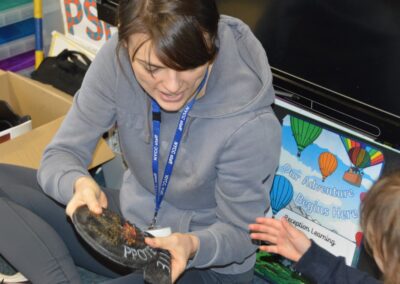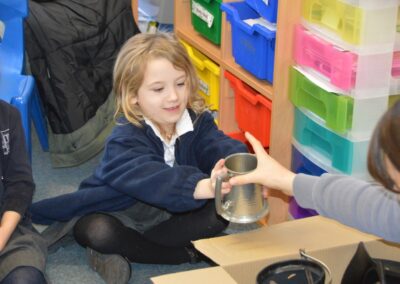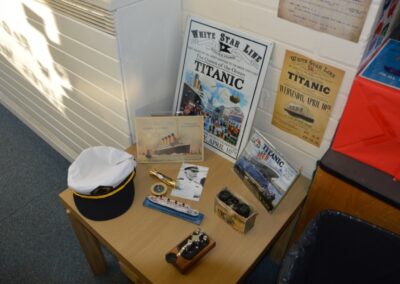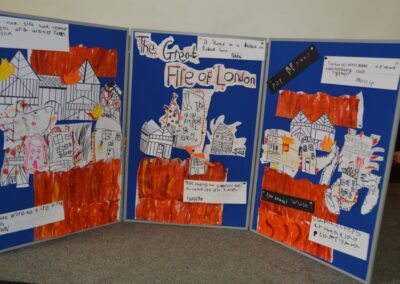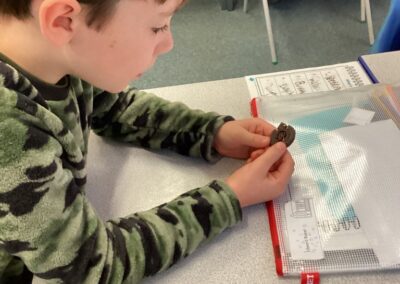History Curriculum Statement – Intent, Implementation and Impact
Intent
At St. Peter’s Brafferton we ignite children’s curiosity about the past in Britain and the wider world. Through finding out about how and why the world, our country, culture and local community have developed over time, children understand how the past influences the present.
We want children to enjoy and love learning about history, by gaining this knowledge and skills, not just through experiences in the classroom, but also with the use of educational visits and visitors into school.
We have high expectations of all children, ensuring that pupils meet the end of key stage outcomes for history in the national curriculum. We encourage children to challenge themselves, persevere and pursue success, ready for the secondary history curriculum.
Our history curriculum has been carefully designed to ensure disciplinary concepts (cause and consequence, change and continuity, similarity and difference, significance, evidence and interpretations) and substantive knowledge are taught in every history unit. Our key strands in history are chronology, enquiry, significant people, significant events and interpretation. These strands are weaved into every lesson as children recall previous learning and they use their skills and knowledge to propel their progress in history.
| Substantive knowledge | Disciplinary concepts | St Peter’s Brafferton Key Strands |
| the historical facts we teach that form the narratives of the curriculum (sticky facts) |
Cause and consequence, Change and continuity, Similarity and difference, Significance, Evidence, Interpretations |
Chronology Enquiry Significant people Significant events Interpretation |
Implementation
Our history curriculum is progressive and taught in half term blocks throughout the year, so that children can achieve depth in their learning. Our mixed aged class structure means that history is planned and taught over a two or three year rolling program. This ensures that skills and knowledge are built year by year and sequenced appropriately to maximise learning for all children.
We teach the History National Curriculum from Year 1-6. To support our teaching in history, teachers use unit overviews with skills and knowledge developed from the Historical Association.
Chronology, significant people, significant events, enquiry and interpretation are the key strands of every lesson. Links between history periods are continually referenced so that pupils gain a breadth of skills and knowledge through our mixed age rolling program.
Substantive knowledge is learnt and remembered using our ‘five finger facts’ method. Children are taught five facts each half term that they can learn and recall.
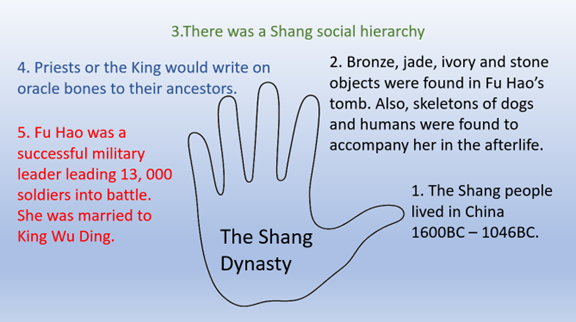
All children including SEND, PP, and children with EAL are supported and challenged at their level enabling them to flourish in line with the school’s commitment to inclusion.
History is very much ‘hands on’ and brought to life through handling artefacts, photographs, eyewitness accounts, educational videos, texts linked to history periods, visitors in school, school trips and experience days.
The Early Years Foundation Stage (EYFS) follows the ‘Development Matters in the EYFS’ guidance which aims for all children in reception to have an ‘Understanding of the World; people and communities, the world and technology’ by the end of the academic year.
Impact
We want all our children to leave St Peter’s Brafferton as good historians. Outcomes in books and pupil voice will evidence a broad and balanced history curriculum and demonstrate children’s acquisition of key skills and knowledge.
We aim to teach them about British history, world history and history of their local area through carefully progressive units. Crucially, we have created a bespoke curriculum which allows them to investigate history which is relevant to them now and, importantly, as adults of the future. Links drawn between subjects such as English, Geography and Computing allow children to demonstrate historical skills in other subject areas.
As historians, it is hoped that children will learn lessons from history to influence the decisions they make in their lives in the future.

